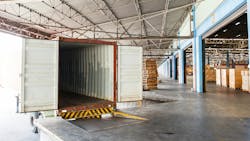5 questions to ask if you're planning to move your business
In my work, I often see business owners achieve more success than they initially anticipated. With that growth comes new and exciting opportunities—upgraded vehicles, toys, and even more travel. But there’s one change I see all too often that ends up costing more than most expect: moving to a new home or relocating a business.
As a professional with a mobile business, moving to a new location is somewhat easier for you than for others. Still, there are a few critical factors to consider when evaluating the actual cost of a move.
Here are a few critical factors to consider when evaluating how much a move might really cost you:
1. How far is the nearest manned fire station?
This is one of the most overlooked details. In many rural or county areas, people see a fire station just 1–3 miles away and assume they’re covered. What they often miss is that the station is volunteer-based and may have emergency response times exceeding 20 minutes.
Even if there’s a staffed fire station nearby, it might be outside your service area — such as within city limits while you're in the county — or in a neighboring town that doesn’t serve your property. Local emergency service districts and contracts can be complex, so proximity doesn’t always mean protection.
2. How close is the nearest police or sheriff’s station? What are the crime stats for the area?
Most insurance companies use crime and incident statistics in their rating systems. If you're moving to a ZIP code with higher rates of theft, vandalism, or auto accidents, your premiums could increase — even if you’re living in a gated, guarded HOA.
3. Will shipping companies access your driveway?
This one surprises many people. Dream homes with long, scenic driveways can create logistical headaches for delivery trucks — especially if you're running a business that depends on shipments. In some cases, people end up renting or purchasing commercial condo space just to receive orders. Often, if they are absent when the order arrives, there are charges from the HOA to let in the shipping company.
If delivery trucks cause property damage, there may be extra liability concerns that could force filing a claim. Storing inventory away from your home can significantly increase your risk of total theft or total fire loss.
4. How close is the nearest fire hydrant? How often do wildfires occur in the area?
It’s easy to assume fire hydrants are common, especially in neighborhoods. But in older developments or homes outside city limits, hydrants may be scarce. Fewer water sources can impact firefighting efforts — and your insurance rates.
If your new home does have a nearby hydrant, especially outside city limits, take a photo with the home or mailbox in view. Underwriters can adjust your fire protection rating with proof. In some newly developed county communities, local codes now require built-in fire suppression systems in homes or large outbuildings.
5. Are you crossing state lines? Check natural disaster risks.
Even a short move across a state border could dramatically change your exposure to risks like tornadoes, wildfires, hail, flooding, or high winds. Each state has different risk profiles — and insurers will factor that into your premiums.
So how can this information help you make a smarter move?
Before relocating, call your insurance agent and ask for quotes on your current policies using the new address. Most agents are happy to run these estimates. Not only will this help you budget more accurately, but it can also give you peace of mind knowing your move is a financially sound one.
About the Author

Caleb Beickel
Caleb Beickel is a business insurance consultant with five years of experience helping clients understand, manage, and maximize their commercial coverage. At Eastman Insurance, he combines practical expertise with a personal touch — educating business owners on what they’re buying, why it matters, and how to keep premiums under control.

